Collaboration, Upgrades, Resilience

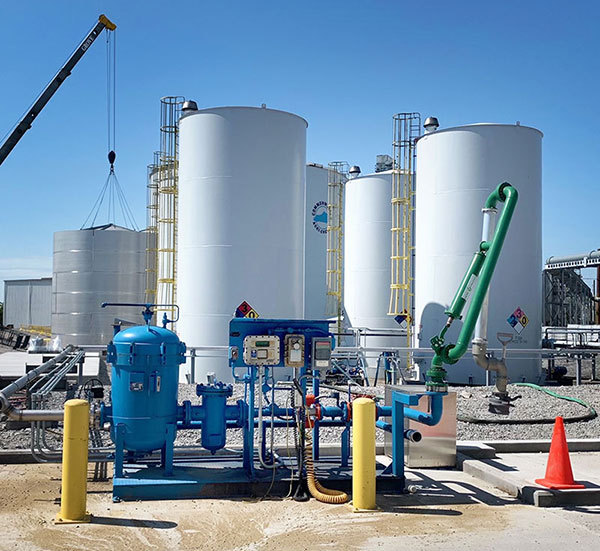
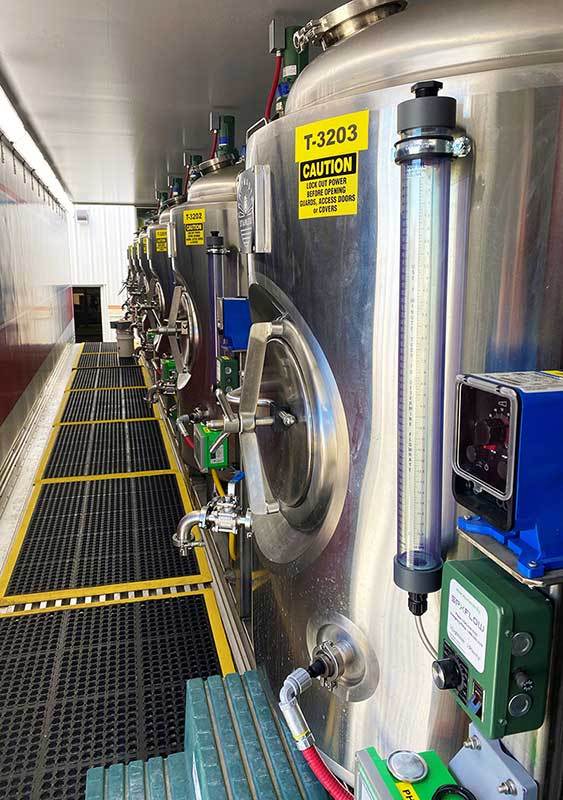
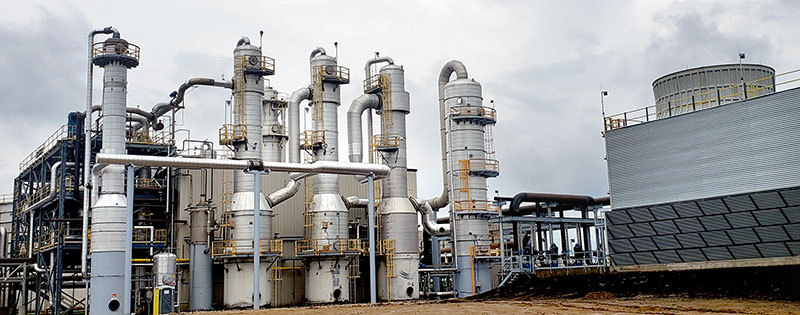
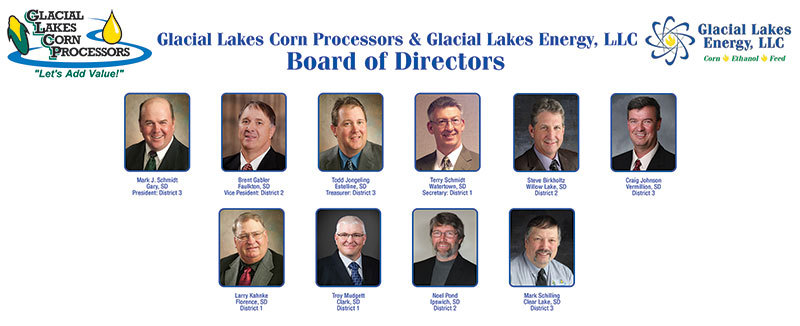
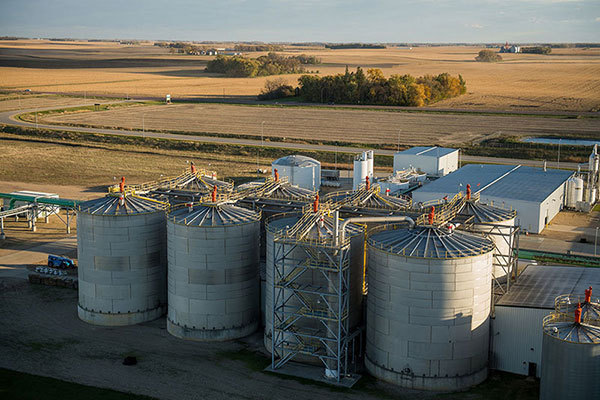
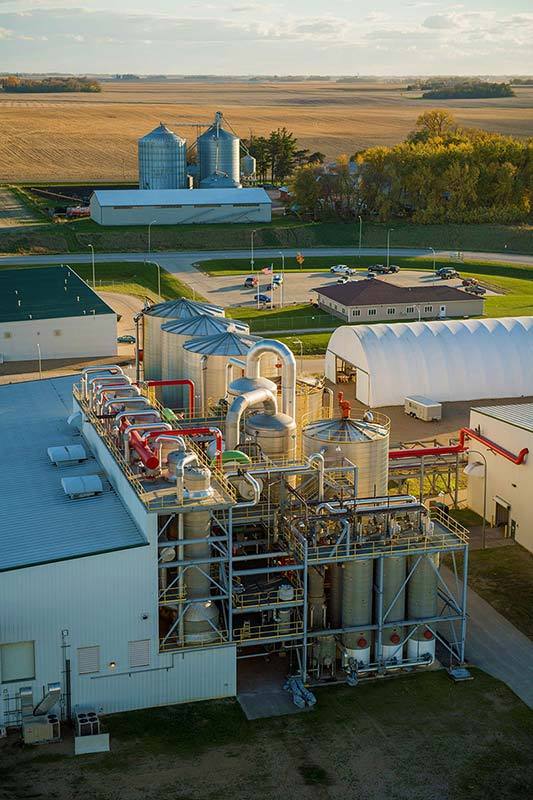
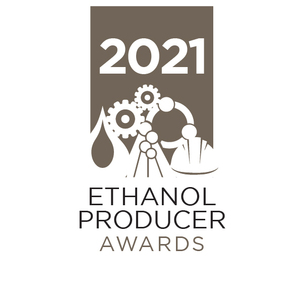
June 8, 2021
BY Matt Thompson
2020 was a year of struggle, but the ethanol industry illustrated its trademark resilience. Ethanol Producer Magazine is extra pleased this year to recognize plants, companies and projects that are helping their communities, helping the industry, and remaining strong in the face of ever-changing market conditions.
The winners of the 2021 Ethanol Producer Awards are:
The Good Neighbor Award:
Commonwealth Agri-Energy
Mick Henderson, general manager of Commonwealth Agri-Energy, a 45 Mmgy plant in Hopkinsville, Kentucky, says he is proud his plant was able to help during the height of the COVID-19 pandemic.
Thanks to upgrades the plant had undergone two years before, Commonwealth was able to quickly start producing ethanol for use in hand sanitizer. “Not to say that we were planning on some big hand sanitizer push, but three years ago, when we did our plant expansion, we were utilizing a cascading pressure distillation to do that expansion energy efficiently,” Henderson says. At that time, they put a side-cut on the top of the still “just in case,” he adds. When the pandemic hit, Commonwealth tapped that line to make ethanol for hand sanitizer.
Henderson says at the start of the pandemic, the first request for ethanol for hand sanitizer production came from a nearby Army base. Soon after, the plant formed partnerships with local distilleries that produced the hand sanitizer, allowing them to remain operating during the crisis, which Henderson says may not have otherwise been the case. “The distilleries were being shut down; fuel ethanol fit the bill,” Henderson says. “These little craft distilleries were going to have to all shut down, so they said, ‘Can you supply us, too?’”
And Commonwealth did. Henderson says each of the three distilleries Commonwealth partnered with were using 12 to 16 totes a week at one point during the height of the pandemic. “We were the silent partner, for the most part,” he says.
Producing ethanol for hand sanitizer may only be a small part of the overall production at Commonwealth, but Henderson says it’s a long-term investment. “We started investing in the plant,” he says. “We probably spent $1 million last summer in pretty short order to make it safe and efficient.” And, he says, the focus has been on producing a quality product, and the plant produces USP-quality ethanol for hand sanitizer. “I think it’s a good diversification of the product line that will serve the business well, long-term,” he says.
“It was a motivational incentive for my employees to come to work when it was kind of scary for a while,” he says. “The motivation was that we were supplying an ingredient, not just in the local gasoline, but providing that hand sanitizer on the counter at schools and hospitals. That was a real feel-good shot in the arm for us.”
Board of the Year:
Glacial Lakes Energy
Glacial Lakes Energy’s Watertown, South Dakota, plant was the first Fagen and ICM plant, which Jim Seurer, Glacial Lakes Energy CEO, says has become the industry standard. That plant opened in the early 2000s, and many of GLE’s current board members were also on the board at that time.
Seurer says working with a board that has such longevity has its advantages. “I think it makes my job easier, especially as some of these guys are historians. They remember fact patterns that have occurred. It helps me focus on just continuing to be the most efficient and get the most out of our facility,” Seurer says.
In his nomination, Dave VanderGriend, ICM CEO, noted that “The trajectory of the fuel ethanol industry could have been very different if not for the efforts of the GLE board, Dennis Vander Griend and Ron Fagen,” as the board took a chance on the ICM/Fagen plant design.
Seurer agrees with VanderGriend. “Had they not kicked that door open, what would it look like today?” Seurer says. “It could look much different than it does. And we all know that the Fagen/ICM plants, in terms of efficiency and forgiveness, rank right up there as one of the best,” he says.
Despite challenging industry conditions, Seurer says the board continues to meet its goals and objectives. “We sat down with the board early on when there were shutdowns occurring, and we chose maybe a little different route,” he says. “We just felt like the best answer was to keep pushing forward and meeting those commitments.”
Despite the challenges the pandemic brought, Seurer says capital improvement projects were delayed, but still completed. “[The pandemic] did slow some of our plans with the two new plants, the Huron and Aberdeen plants,” he says. “It was a collaborative approach, and the board had a high level of trust in management, and we pulled through very well.”
Seurer says new faces are coming to the GLE board. “We’re in the process of transitioning the board. We’ve got newer folks coming on, in some cases second generation of founders, which is identical to what is going on on the farm,” Seurer says. But the board will still benefit from experienced members. “We still have some of that longevity, some of that history out there.”
Collaboration of the Year:
Absolute Energy and Lallemand Biofuels & Distilled Spirits
Longevity is also important to this year’s recipients of the collaboration of the year award: Absolute Energy and Lallemand Biofuels & Distilled Spirits.
“We have had a very good relationship with Lallemand for some time,” says Rick Schwarck, president and CEO of Absolute Energy, a 125 MMgy plant in St. Ansgar, Iowa. “They’re stepping up and making a commitment to the industry to help with yeast development and improved fermentation and conversions,” he says, adding that those improvements help increase yields. “Better yield leads to a better CI (carbon intensity) score for the overall industry,” Schwarck says.
Schwarck points specifically to Lallamand’s research and development trailer, which is located on Absolute Energy’s campus, and has been in operation for about three months. “It’s a series of mini fermenters that replicate the plant,” he says. “When they’re developing and trialing new yeast, you can do that using our direct mash, in those fermenters to see how they perform.” After successful testing in the R&D trailer, Schwarck says, the yeast can then be tested on a larger scale in the plant itself. The advantage, Schwark says is that it “[cuts] down the delivery time from development to actual application of a product.”
“Lallemand’s a good partner as we implement this research and development for the benefit of the whole industry, not just us,” Schwarck says.
Project of the Year:
Green Plains Inc.
Last year, Green Plains Inc. completed upgrades to the distillation systems in three of its plants: Superior, Iowa, and Fergus Falls and Fairmont in Minnesota. Those upgrades resulted in less downtime for cleaning beer columns and reboilers, lower operating costs, significant reductions in energy usage, and improved carbon intensity scores, according to Ryan Hennes, senior project manager at ICM, who nominated the Green Plains projects.
The three distillation upgrades are part of Green Plains’ Project 24, an initiative to reduce operating costs to below 24 cents per gallon.
“Our Project 24 improvements have reduced energy and water usage, lowering operating costs and, more importantly, resulting in a reduced carbon footprint,” says Todd Becker, president and CEO of Green Plains Inc. “We are continually focused on transforming our operations to become more sustainable and efficient, on our road to creating the biorefinery platform of the future.”
“Not only do those projects represent a large step forward as far as reducing the energy usage at those plants, we reduced the downtime at those plants,” Hennes says, adding that downtime is a major problem at plants using high pressure distillation systems. “Those plants are down fairly consistently to do a CIP process.”
“The plants have experienced a reduction in maintenance cost as the stress of shutting down and then starting back up during CIP days has been eliminated,” says Adam Crotteau, senior vice president of operations at Green Plains. “This has allowed plant maintenance staff to focus on performing preventive maintenance tasks instead of being reactive to equipment failures.”
Hennes says the system works by “combining the advantages of a high-pressure rectifier with the benefits of a vacuum beer column.” The high temperatures and pressures in beer columns, he adds, can lead to rapid fouling, which means the columns need to be cleaned often. The addition of a vacuum beer column, which operates at lower temperatures, reduces fouling, Hennes says. An evaporator is also added, which condenses 200-proof vapors, and reduces the energy consumption used in distillation.
“You see such dramatic results with those projects,” Hennes says. “Each project demonstrated a reduction of over 5,000 btus per gallon and a reduction in electricity of over 0.2 kwh per gallon.” In addition, the plants have been able to go at least six months between shutdowns.
Project 24 brings even more benefits, Crotteau says. Syrup volume is greatly reduced due to higher solids in evaporation, corn oil yield increases due to the favorable operating conditions, and DDGS color is improved due to lower operating temperatures in distillation.
Workplace of the Year:
Valero-Welcome
As Ethanol Producer Magazine’s recipient of the Workplace of the Year award, Valero Renewable Fuels’ plant, in Welcome, Minnesota, is invested in its employees. According to Welcome’s plant manager, Nicole Gries, Valero considers its employees one of the most critical parts of the business. “[Valero] fosters a culture that supports diversity and inclusion, and provides a safe, healthy and rewarding work environment with opportunities for growth.”
Lillian Riojas, Valero’s executive director of public relations and creative services, agrees. “We consider our employees a competitive advantage and our greatest asset,” she says, adding that the company provides extensive training, including professional development and leadership training, as well as tuition reimbursement.
Those investments in employees pay off—according to Gries, the plant has a low turn-over rate. In 2020, she says, four employees retired, all of whom had been with the plant since its startup in 2009.
Health, wellness and safety of its employees are also important to Valero. Gries says the Welcome plant offers a Total Wellness Program which “invites employees to Choose Well, Live Well and Be Well, and includes not just annual medical benefits enrollment, but also a variety of virtual health and financial wellness training sessions throughout the year.” Gries reports the Welcome plant has not had a recordable injury for any of its employees in the last two and a half years—five years for contractors. Those statistics, among others, led the plant to receiving Valero’s Chairman’s Award for Excellence in 2020.
Riojas echoes Gries in the importance of employee safety. “We believe safety is our foundation for success.”
The Total Wellness Program grew out of feedback from employees, Riojas says. “Employee feedback is critical to continuous improvement of our programs,” she says. “This feedback prompted new programs, such as Financial Wellness and participation incentives in the Total Wellness Program.”
Welcome’s plant management is a diverse group, according to Gries. She says the leadership team is half female, including her role as plant manager. In addition, 14 of the plant’s 68 employees are military veterans. “A Welcome shift supervisor was honored in 2020 with the Patriotic Employer Award from the Department of Defense program Employer Support of the Guard and Reserve (ESGR), after being nominated by an employee in recognition of the plant’s support of his and other service members’ military commitments,” Gries says.
Author: Matt Thompson
Freelance Journalist
m.thompson2005@gmail.com
Published in July 2021 issue of Ethanol Producer Magazine
Advertisement
Advertisement
Related Stories
The Michigan Advanced Biofuels Coalition and Green Marine are partnering to accelerating adoption of sustainable biofuels to improve air quality and reduce GHG emissions in Michigan and across the Great Lakes and St. Lawrence Seaway.
EIA reduces production forecasts for biobased diesel, increases forecast for other fuels, including SAF
The U.S. Energy Information Administration reduced its 2025 forecasts for renewable diesel and biodiesel in its latest Short-Term Energy Outlook, released April 10. The outlook for “other biofuel” production, which includes SAF, was raised.
FutureFuel Corp. on March 26 announced the restart of its 59 MMgy biodiesel plant in Batesville, Arkansas. The company’s annual report, released April 4, indicates biodiesel production was down 24% last year when compared to 2023.
Neste has started producing SAF at its renewable products refinery in Rotterdam. The refinery has been modified to enable Neste to produce up to 500,000 tons of SAF per year. Neste’s global SAF production capacity is now 1.5 million tons.
Tidewater expects to make final investment decision on proposed SAF project during second half of 2025
Tidewater Renewables Ltd. has reported that its biorefinery in Prince George, British Columbia, operated at 88% capacity last year. A final investment decision on the company’s proposed SAF project is expected by year end.
Upcoming Events










